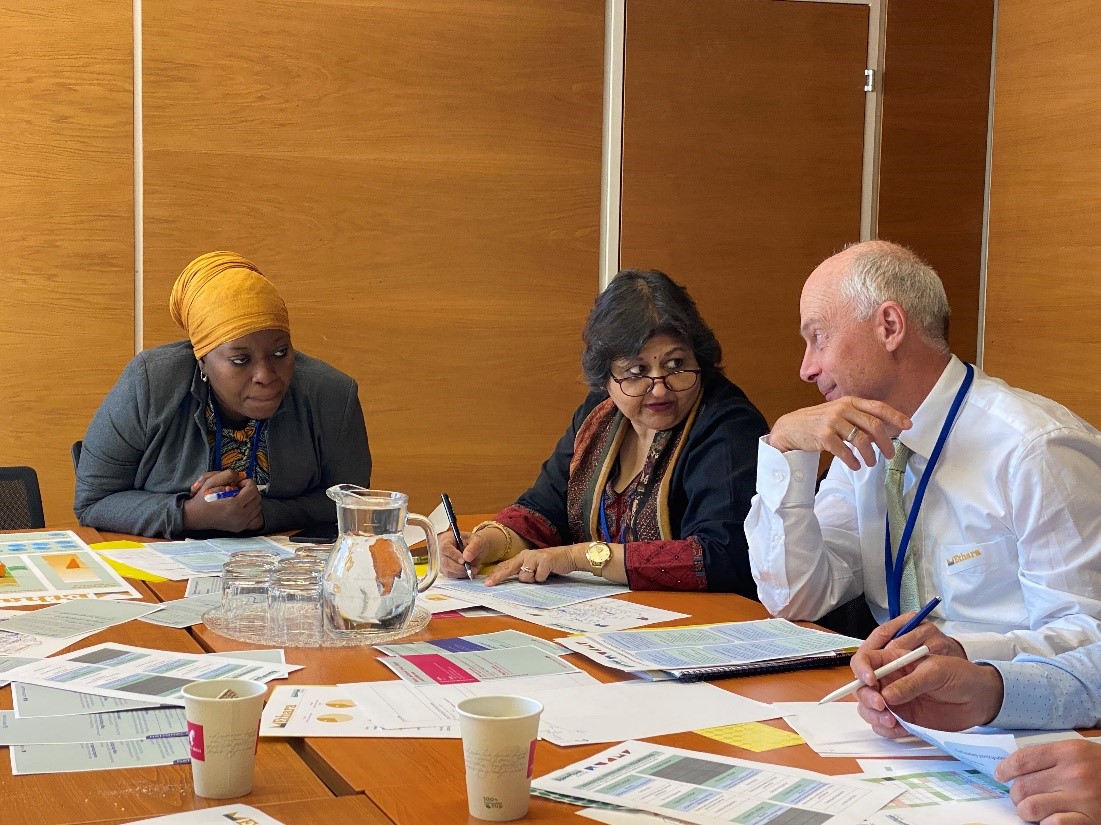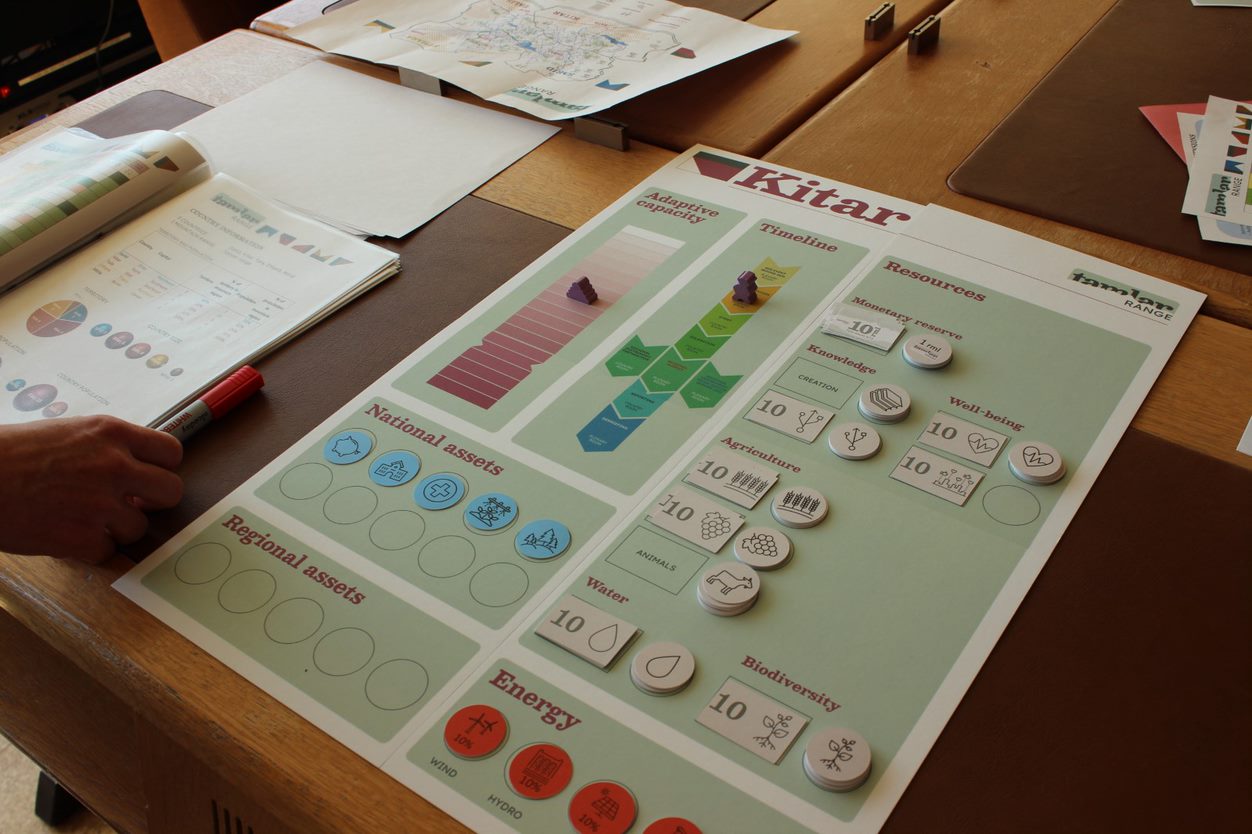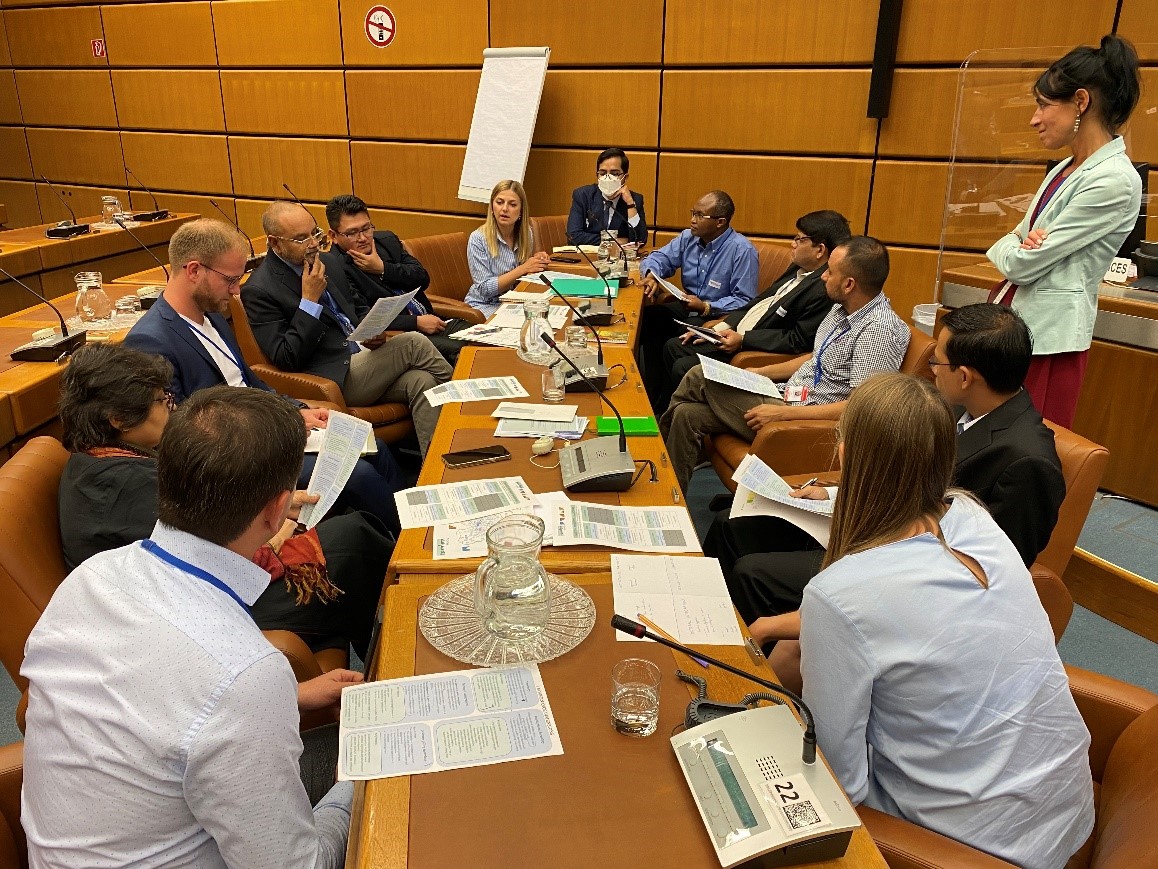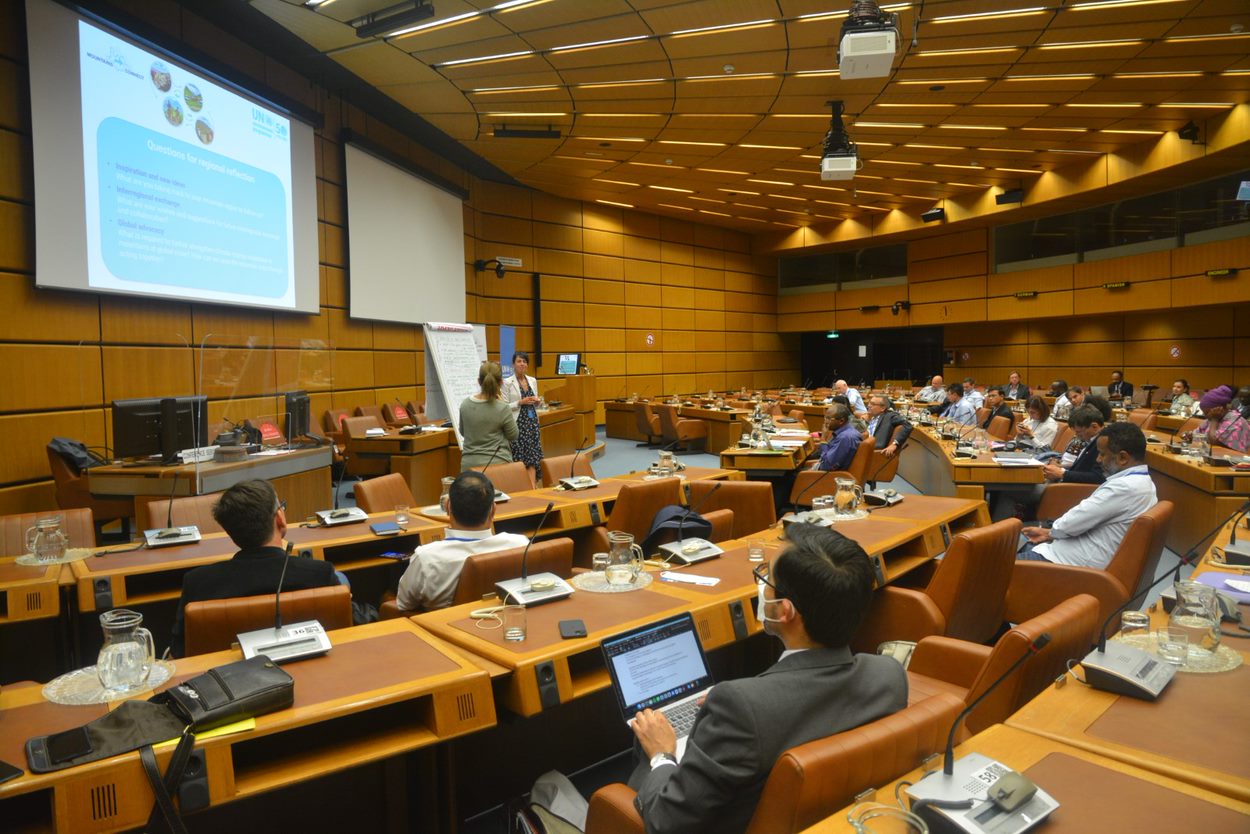A governance simulation to foster climate change adaptation
 Participants of the Mountains Connect Interregional Workshop taking part in the Tamlar Range governance simulation (Photo credits: Stéphanie Reusse)
Participants of the Mountains Connect Interregional Workshop taking part in the Tamlar Range governance simulation (Photo credits: Stéphanie Reusse)
The Mountains Connect Interregional Workshop brought together more than fifty stakeholders and mountain experts from around the world from June 20-22, 2022. Policy makers, public administration staff, academics, and NGO representatives from the Andes, Hindu Kush Himalaya, Alps, Carpathians, East Africa, and South Caucasus gathered to exchange good practices of mountain range governance as well as to identify future strategies for interregional exchange.
This event, hosted in Vienna by the United Nations Environment Programme was part of the Adaptation at Altitude programme launched and funded by the Swiss Agency for Development and Cooperation and implemented by the Mountain Research Initiative (MRI), Consorcio para el Desarollo Sostenible de la Ecoregión Andina (CONDESAN), International Centre for Integrated Mountain Development (ICIMOD), Stockholm Environment Institute (SEI), UNEP, Zoï Environment Network, and the University of Geneva.
 Over 50 participants from around the mountain world gathered at the Vienna International Centre (VIC)" (Photo credits: Ansgar Fellendorf)
Over 50 participants from around the mountain world gathered at the Vienna International Centre (VIC)" (Photo credits: Ansgar Fellendorf)
A governance simulation to foster adaptation
Mountain people have always faced the challenges of living in a rugged environment and have developed coping strategies to adapt to harsh conditions, but the unprecedented magnitude and speed of climate change puts them under increasing pressure. Traditional adaptation strategies need to be blended with innovative approaches and this knowledge needs to be shared among the mountain communities and with policymakers so that adaptation can match the scale of the changes. But how to facilitate knowledge exchange to foster cross-regional mountain cooperation in the context of climate change?
Starting from the premise that an active experience is worth a thousand lectures, our colleagues Stéphanie Reusse and Jörg Balsiger from the Environmental Governance and Territorial Development Hub (GEDT) at the University of Geneva developed a governance simulation in the form of a serious game to foster collective learning among key actors in mountain range governance. The simulation was facilitated in cooperation with Chloé Baruffa (GEDT), Carolina Adler (MRI), Alex Mackey (Zoï), Louis Daniel Llambi (CONDESAN), Julia Barrott (SEI), Ansgar Fellendorf (UNEP), and Sabine McCallum (UNEP).
Based on the expertise of mountain experts, the simulation invited the participants to watch 7 videos which synthesise important dimensions of mountain governance.
The Tamlar range simulation
The Tamlar Range governance simulation introduces the participants to a fictitious world where 5 neighboring countries share a mountain range and face serious environmental and societal challenges as a result of climate change. In this (not so) fictitious world, the countries of Talis, Kitar, Miria Ethara, and Sarid have unequal monetary reserves, resources, and different national interests but are all impacted by the multi-dimensional impacts of climate change.
 Serious games or governance simulations are innovative facilitation tools which can foster creative problem analysis and strategy definition (Photo credits: Ansgar Fellendorf)
Serious games or governance simulations are innovative facilitation tools which can foster creative problem analysis and strategy definition (Photo credits: Ansgar Fellendorf)
Over the course of three rounds representing four years each, the participants of the Tamlar Range governance simulation are invited to design and implement a coherent vision for achieving a desired future by means of investments in national and regional assets as well as a regional governance instrument that supports adaptive capacity.
To do so, they need to define their national objectives, anticipate and face unexpected events, identify and implement cooperation pathways with their neighboring countries, while experiencing the effects of decisions on their adaptative capacity in real time.
 Excerpt from the Tamlar range simulation. Here, national delegates are debating and negotiating the creation of a cross-regional mountain range governance instrument (Photo credits: Stéphanie Reusse)
Excerpt from the Tamlar range simulation. Here, national delegates are debating and negotiating the creation of a cross-regional mountain range governance instrument (Photo credits: Stéphanie Reusse)
The Tamlar Range governance simulation invites participants to:
- experience the impacts that climate change can have in mountain regions and the consequences of collective adaptative strategies and decisions;
- devise strategies for adaptive governance in a context of high uncertainty, time constraint, and interdependent challenges; and
- share regional mountain regional adaptation and cooperation strategies;
 The Tamlar Range governance simulation was used as a basis to discuss adaptation strategies and cooperation pathways in (real world) mountain ranges (Photo credits: Ansgar Fellendorf)
The Tamlar Range governance simulation was used as a basis to discuss adaptation strategies and cooperation pathways in (real world) mountain ranges (Photo credits: Ansgar Fellendorf)
By facilitating discussions and exchanges, the Tamlar Range governance simulation provided an invaluable platform for imagining the future of climate change adaptation in mountain regions and to identify cross-regional cooperation pathways.
 The Tamlar Range governance simulation is an original creation of our GEDT colleagues Jörg Balsiger and Stephanie Reusse (Photo credits: Ansgar Fellendorf)
The Tamlar Range governance simulation is an original creation of our GEDT colleagues Jörg Balsiger and Stephanie Reusse (Photo credits: Ansgar Fellendorf)
What's next?
- .The materials of the Tamlar Range governance simulation, such as the handbook, game material etc. will be made available and uploaded to the www.mountains-connect.org to facilitate its replication
- To keep updated and learn more about the Adaptation at Altitude program click here
- Follow #MountainsConnect
30 juin 2022
Actualités 2022
